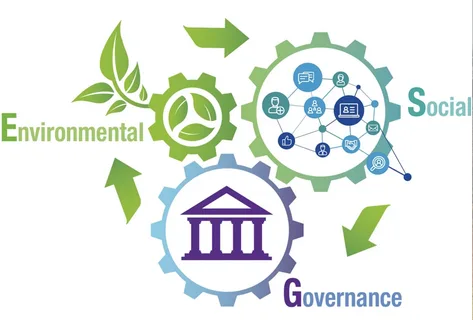In an increasingly interconnected world, the role of technology in global governance has become a pivotal topic of discussion. From facilitating international cooperation to enhancing transparency and accountability, technology is reshaping the landscape of global governance in profound ways. This article delves into the multifaceted impact of technology on global governance, focusing on key areas such as communication, data management, cybersecurity, and public participation.
Communication and Collaboration

One of the most significant contributions of technology to global governance is the enhancement of communication and collaboration among nations. Digital platforms and communication tools have revolutionized the way governments, international organizations, and non-governmental organizations (NGOs) interact. Video conferencing, for example, has made it easier for leaders and diplomats to hold virtual summits, reducing the need for costly and time-consuming travel. This not only accelerates decision-making processes but also allows for more frequent and inclusive dialogues.
Moreover, social media platforms have emerged as powerful tools for diplomacy and public engagement. Governments and international organizations can now communicate directly with citizens and stakeholders worldwide, fostering a more transparent and participatory form of governance. For instance, the United Nations (UN) uses social media to disseminate information about its initiatives, engage with the public, and gather feedback, thereby enhancing its legitimacy and accountability.
Data Management and Decision-Making
The advent of big data and advanced analytics has transformed the decision-making processes in global governance. Access to vast amounts of data allows policymakers to make more informed and evidence-based decisions. Predictive analytics, for example, can help identify potential crises before they escalate, enabling preemptive actions and reducing the risk of conflicts.
International organizations such as the World Health Organization (WHO) and the World Bank leverage data analytics to address global challenges. During the COVID-19 pandemic, real-time data on infection rates, hospital capacities, and vaccination progress played a crucial role in shaping global responses. Similarly, data-driven insights are being used to tackle issues like climate change, poverty, and migration, making global governance more effective and responsive.
Cybersecurity and Digital Sovereignty
As technology becomes more integral to global governance, cybersecurity has emerged as a critical concern. Cyber threats pose significant risks to national security, economic stability, and public trust. Protecting sensitive information and ensuring the integrity of digital infrastructure are paramount for maintaining the stability of global governance systems.
International cooperation is essential to address cybersecurity challenges. Initiatives such as the Paris Call for Trust and Security in Cyberspace and the Budapest Convention on Cybercrime aim to establish norms and frameworks for international collaboration on cybersecurity. These efforts underscore the importance of collective action in safeguarding digital sovereignty and preventing cyber conflicts.
Public Participation and Inclusivity

Technology has democratized access to information and empowered individuals to participate in global governance. Digital platforms and online forums provide citizens with opportunities to engage in policy discussions, advocate for their rights, and hold governments accountable. E-petitions, social media campaigns, and virtual town halls are just a few examples of how technology is fostering greater public participation.
The rise of e-governance initiatives has further enhanced inclusivity. Governments are increasingly adopting digital tools to provide public services, streamline administrative processes, and engage with citizens. For instance, Estonia’s e-residency program allows individuals from around the world to establish and manage businesses online, promoting economic inclusivity and cross-border collaboration.
However, the digital divide remains a significant challenge. While technology has the potential to bridge gaps, disparities in access to digital infrastructure and literacy persist. Ensuring that marginalized and underserved communities can benefit from technological advancements is crucial for achieving equitable global governance.
Challenges and Ethical Considerations
Despite its numerous benefits, the integration of technology into global governance also presents challenges and ethical considerations. Issues such as data privacy, surveillance, and algorithmic bias require careful attention. The misuse of technology for propaganda, misinformation, and cyber warfare poses threats to global stability and security.
Moreover, the concentration of technological power in the hands of a few corporations raises concerns about accountability and control. The dominance of tech giants in areas such as social media, data analytics, and artificial intelligence (AI) necessitates robust regulatory frameworks to ensure that their influence aligns with the principles of democratic governance and human rights.
Conclusion
The role of technology in global governance is multifaceted and transformative. It has revolutionized communication and collaboration, enhanced data-driven decision-making, and empowered public participation. However, it also presents challenges that require careful management and ethical considerations.
As we navigate the complexities of the digital age, it is essential to foster international cooperation, promote digital inclusivity, and establish robust regulatory frameworks. By harnessing the potential of technology while addressing its challenges, we can create a more transparent, accountable, and inclusive system of global governance that is better equipped to address the pressing issues of our time.




